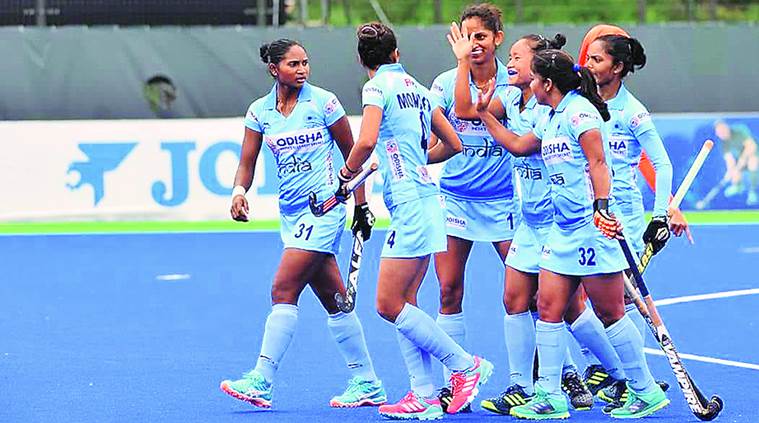 Marijne believes the team has made a lot of progress , and has set a target of finishing in the top six at the World Cup.
Marijne believes the team has made a lot of progress , and has set a target of finishing in the top six at the World Cup.
Just like there weren’t any teary goodbyes when he left them eight months ago, Sjoerd Marijne did not get an elaborate welcome when he rejoined the women’s hockey team at Donghae, South Korea, a fortnight back. Rather, they managed to see the lighter side of those uncertain, vexing days when the women’s team unwittingly became the victim of an underperforming men’s side.
“I met them and said, ‘Hello girls, here I am again,’” Marijne, who was transferred from the men’s team to the women’s following a disappointing Commonwealth Games campaign, says. “They started to laugh and said they were happy. I felt a warm welcome.”
It was a feeling that was largely missing in the men’s dressing room, where Marijne cut an isolated figure, and by the time the Commonwealth Games ended, the relationship between him and his leadership group had soured to such an extent that the players complained to Hockey India, who sacked him as the coach. Marijne was sent back to the women’s team, whom he coached before being made the men’s team coach last September.
If there’s any bitterness, Marijne disguises it well. But he knows one thing for sure: “It happened because of other reasons. I know this didn’t happen because of my quality as coach. Everybody can see they were playing better. I don’t see any doubts about myself. These things have other reasons.” He does not want to dwell on the ‘other reasons.’
He now wants to help the women’s team earn some respect after being mistreated for no fault of theirs. “I think it’s important the women also get a voice because they are doing well. It’s important they also get recognised as high athlete team,” he says. For that to happen, Marijne realises results are the key.
Last Sunday, India lost to South Korea in the final of the Asian Champions Trophy. Without two key players, Rani Rampal and Sushila Chanu, India began the tournament well and defeated regional heavyweights China, got a bit flat in the middle and were beaten in the final in a tactical battle against the host nation.
It’s given Marijne a lot of fodder to work with before the World Cup and the Asian Games. The over-reliance of the defence on goalkeeper Savita Punia has been an issue faced by the last three coaches but another weakness that was exposed in the tournament was the team’s inability to deal with aerial balls. In the final, South Korea repeatedly played high balls, which the players could not intercept. “We struggled to create more opportunities because of that,” Marijne says.
But the Dutchman says his task will become relatively easy because there’s a continuity in the coaching process. Even though he wasn’t there for seven months – from September last year to April – he says the defensive and attacking structures employed by the team are the ones that he had introduced during his first stint.
The biggest difference in the team, he points out, is their fitness and mentality. Marijne had earlier said that the women players were shy, which reflected in the way they played matches. In his short stint, Harendra Singh was credited with improving the fortunes of the team, turning them into a confident bunch.
It showed in their dominant performances at the Asia Cup, which they won after 13 years. Marijne says the players are ‘realistic’ about that triumph – “not all teams were full strength” – but acknowledges that the win over Olympic champions England in Gold Coast has boosted morale. “They aren’t afraid of any opponent, their body language is different,” Marijne says. “Priyanka, the psychologist, has done a lot of work with the girls. The fitness of the players is good too.”
The mental strength and fitness of the team will be put to test in a little over a month at the World Cup in London. It will be the first major global competition for the team since the Rio Olympics, where they were out of their depth and returned without winning a match.
Marijne believes the team has made a lot of progress since, and has set a target of finishing in the top six. That, he insists, would give them the belief to win the Asian Games gold medal, which would ensure an Olympic quota.
That, Marijne knows, is the only way for them to enhance their reputation on the field. “We need to be higher-ranked than the men, that’s the only way the situation can change. And by winning titles